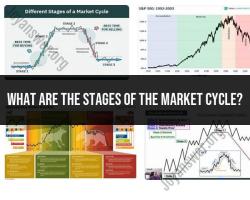What are the best stocks for paying dividends?
The best stocks for paying dividends can vary depending on your investment goals, risk tolerance, and the current market conditions. Dividend stocks are typically issued by well-established, financially stable companies with a history of returning profits to their shareholders in the form of dividends. Here are some common types of dividend-paying stocks to consider:
Dividend Aristocrats: These are companies in the S&P 500 that have consistently increased their dividends for at least 25 consecutive years. They tend to be large-cap, blue-chip stocks known for stability and reliability.
Dividend Kings: Even more exclusive than Aristocrats, Dividend Kings are companies that have raised their dividends for 50 or more consecutive years, demonstrating an exceptional commitment to rewarding shareholders.
High-Yield Dividend Stocks: These are stocks that offer dividend yields significantly higher than the market average. While they can provide substantial income, they may come with higher risk, so careful research is important.
Real Estate Investment Trusts (REITs): REITs are companies that own or finance income-producing real estate in various sectors, such as residential, commercial, or healthcare. They are required by law to distribute at least 90% of their taxable income to shareholders in the form of dividends.
Utility Stocks: Utilities are often seen as defensive investments because they provide essential services. They typically offer relatively stable dividend payments.
Consumer Goods Stocks: Companies in the consumer goods sector, like large food and beverage producers, often have a history of paying consistent dividends.
Dividend Growth Stocks: These companies may not have long dividend histories but show strong potential for future dividend growth based on their financial health and business prospects.
It's important to conduct thorough research and consider your investment goals and risk tolerance when selecting dividend stocks. Additionally, diversification is key to managing risk in your portfolio. It's advisable to consult with a financial advisor or do your own research to identify specific stocks that align with your investment strategy and objectives.
Remember that while dividends can provide a steady stream of income, they are not guaranteed, and stock prices can fluctuate. Make sure to assess the financial health and stability of the companies you're considering for dividend investments.
Top Stocks Known for Consistent Dividend Payments
Many companies have a long history of paying consistent dividends to their shareholders. Here are some of the top stocks known for their consistent dividend payments:
ExxonMobil (XOM): ExxonMobil is a multinational oil and gas company with a dividend yield of 3.3%. It has paid a dividend every year since 1912.
Johnson & Johnson (JNJ): Johnson & Johnson is a multinational corporation that manufactures pharmaceutical, medical devices, and consumer packaged goods. It has a dividend yield of 2.5% and has paid a dividend every year since 1887.
Coca-Cola (KO): Coca-Cola is a multinational beverage corporation that manufactures, sells, and distributes carbonated soft drinks. It has a dividend yield of 3.3% and has paid a dividend every year since 1893.
3M (MMM): 3M is a multinational conglomerate corporation that operates in a diversified range of industries, including industrial, healthcare, and consumer goods. It has a dividend yield of 2.1% and has paid a dividend every year since 1916.
Procter & Gamble (PG): Procter & Gamble is a multinational consumer goods corporation that produces a variety of household products, including personal care, beauty, and healthcare products. It has a dividend yield of 2.3% and has paid a dividend every year since 1893.
Research and Analysis Tools for Identifying Reliable Dividend Stocks
There are a number of research and analysis tools that you can use to identify reliable dividend stocks. These tools can help you to:
Evaluate a company's financial health: This includes looking at its earnings, debt levels, and cash flow.
Track a company's dividend history: This will show you how long the company has been paying a dividend and how its dividend has grown over time.
Compare a company's dividend yield to other companies in its industry: This will help you to see if the company's dividend is competitive.
Read analyst reports: Analyst reports can provide valuable insights into a company's financial health and dividend prospects.
Dividend Aristocrats: Companies with a History of Dividend Growth
Dividend Aristocrats are S&P 500 companies that have increased their dividends every year for at least 25 consecutive years. These companies are considered to be relatively safe investments, as they have a proven track record of rewarding their shareholders.
Here are some of the Dividend Aristocrats:
- 3M (MMM)
- Coca-Cola (KO)
- ExxonMobil (XOM)
- Procter & Gamble (PG)
- Johnson & Johnson (JNJ)
Balancing Dividend Stocks in a Portfolio for Stability and Growth
When investing in dividend stocks, it is important to balance stability and growth. You want to invest in companies that have a history of paying consistent dividends, but you also want to invest in companies that are growing their dividends.
A good rule of thumb is to allocate 60% of your portfolio to stable dividend stocks and 40% of your portfolio to growth stocks. This will give you a mix of stability and growth potential.
Staying Informed and Adjusting Your Dividend Stock Investments
It is important to stay informed about the companies that you invest in. This includes reading news articles, analyst reports, and company filings. You should also review your portfolio regularly and make adjustments as needed.
If a company's financial health deteriorates or its dividend is cut, you may want to sell the stock. Conversely, if a company's dividend is increased, you may want to buy more shares.
By following these tips, you can invest in dividend stocks and build a portfolio that provides you with a steady stream of income.
Investing in dividend stocks can be a great way to build a retirement nest egg or to supplement your income. However, it is important to do your research and to understand the risks involved.












